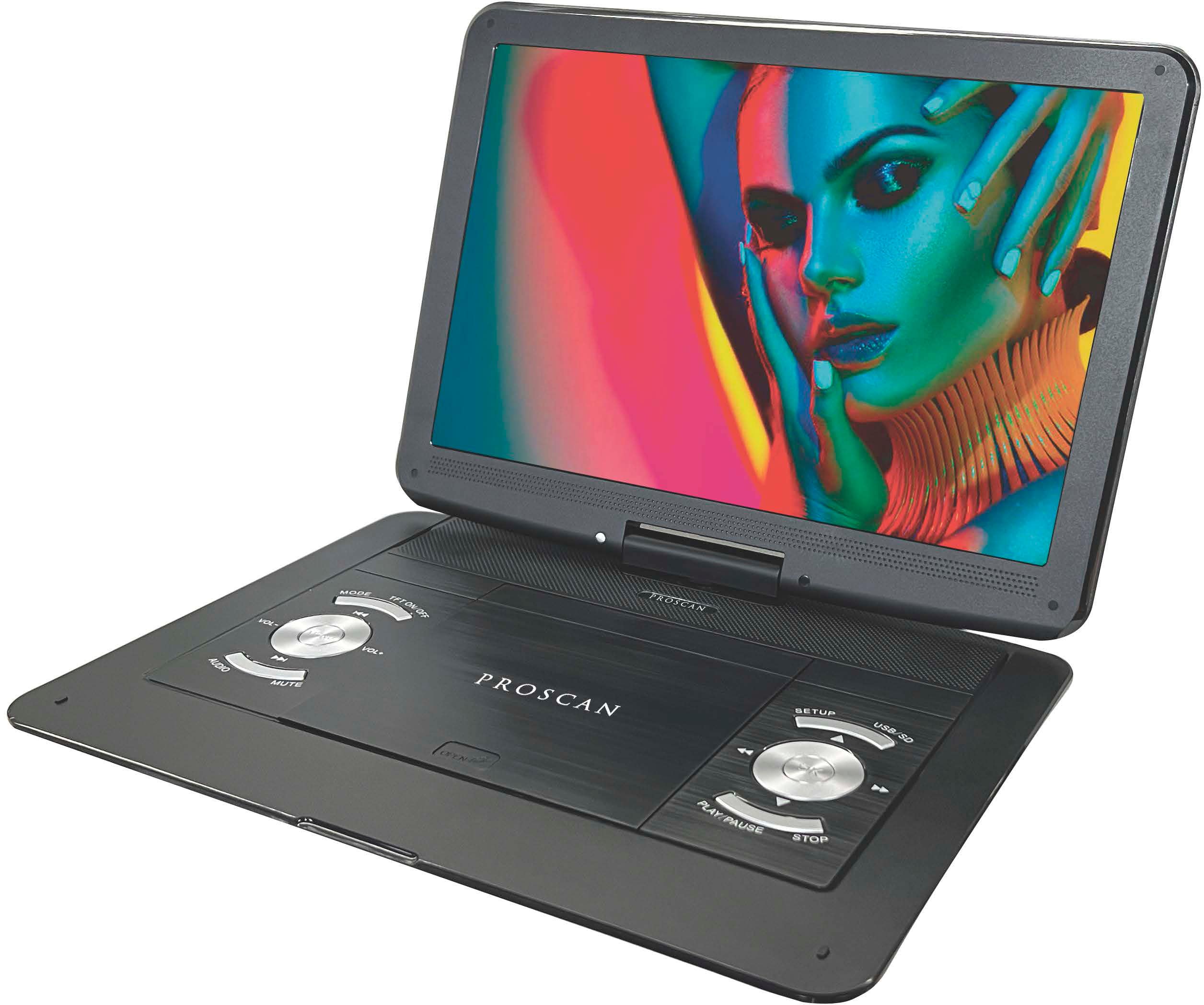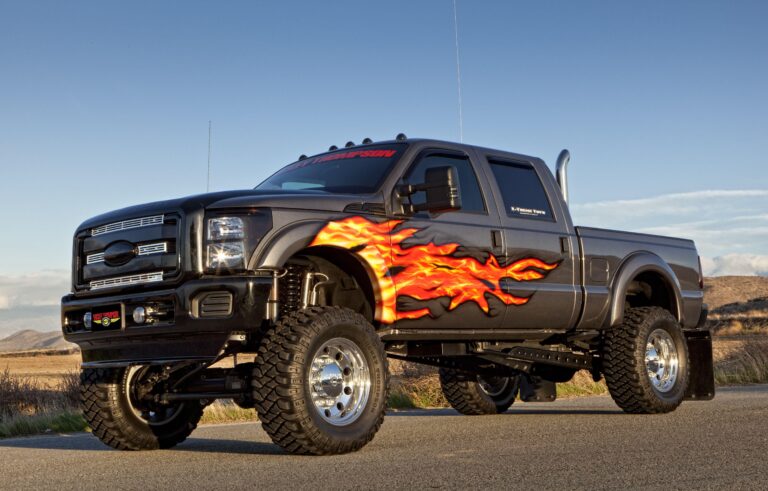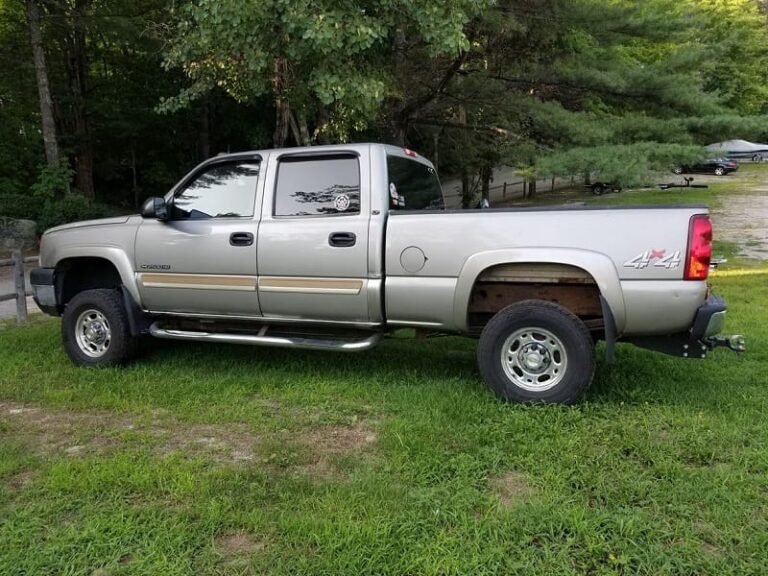Portable Restroom Trucks For Sale: Your Comprehensive Guide to Investing in Mobile Sanitation
Portable Restroom Trucks For Sale: Your Comprehensive Guide to Investing in Mobile Sanitation cars.truckstrend.com
In an increasingly mobile world, the demand for convenient, hygienic, and accessible sanitation solutions is ever-present. From bustling construction sites and sprawling agricultural fields to vibrant outdoor festivals and emergency response zones, portable toilets are an indispensable amenity. But what about the unsung heroes that keep these facilities operational and clean? Enter the Portable Restroom Truck – a specialized vehicle designed for the efficient servicing of portable toilets, septic tanks, and other waste containment systems. For entrepreneurs, sanitation companies, event organizers, and even municipalities, acquiring the right portable restroom truck is not just a purchase; it’s an investment in efficiency, profitability, and public health. This comprehensive guide will delve into everything you need to know about portable restroom trucks for sale, helping you navigate the market and make an informed decision.
What Exactly Are Portable Restroom Trucks?
Portable Restroom Trucks For Sale: Your Comprehensive Guide to Investing in Mobile Sanitation
Often referred to as vacuum trucks, pumper trucks, or septic trucks, portable restroom trucks are purpose-built vehicles equipped to manage liquid waste and replenish freshwater in remote or temporary locations. At their core, these trucks typically comprise several key components:
- Vacuum Pump: The heart of the system, this powerful pump creates a vacuum to suction waste from portable toilets, septic tanks, or other holding tanks into the truck’s waste tank. Common types include rotary vane pumps (for general portable toilet service) and positive displacement pumps (often used for heavier septic work).
- Waste Tank (Septic Tank): This sealed tank, usually made of steel, aluminum, or sometimes even polyethylene, holds the collected wastewater. Capacities vary widely, from a few hundred gallons for smaller operations to several thousand gallons for large-scale servicing.
- Freshwater Tank: A separate tank stores clean water, used for flushing, refilling hand wash stations, or cleaning the portable units themselves. This dual-tank system is crucial for efficient servicing.
- Hose Reels and Hoses: Equipped with sturdy hoses for both vacuuming waste and dispensing freshwater. Many trucks feature hydraulic or electric hose reels for ease of use and safety.
- Washdown System: Often includes a pressure washer or spray nozzle connected to the freshwater tank for cleaning portable units on-site.
- Chassis: The truck’s frame, engine, and cab, which can range from light-duty pickups fitted with slide-in units to heavy-duty commercial trucks designed for extensive routes.
- Power Source: The pump is typically powered by the truck’s engine via a Power Take-Off (PTO) system, or in some cases, by a dedicated auxiliary engine.

These trucks are the backbone of any portable sanitation service, enabling companies to maintain hygiene standards, comply with environmental regulations, and deliver essential services wherever they are needed.
Who Needs a Portable Restroom Truck and Why?
The demand for portable restroom trucks spans various sectors, each benefiting from their unique capabilities:

- Portable Toilet Rental Companies: This is the primary user group. These trucks are essential for daily operations, allowing companies to efficiently service and maintain their fleet of portable toilets at various client locations.
- Construction Companies: Many larger construction firms operate their own pumper trucks to manage on-site sanitation for workers, ensuring compliance with OSHA regulations and maintaining a productive work environment.
- Event Management Companies: For concerts, festivals, sporting events, and large gatherings, portable restroom trucks are critical for ensuring adequate and sanitary facilities throughout the event’s duration.
- Municipalities and Public Works Departments: Cities and towns use these trucks to maintain public parks, temporary event sites, and to respond to sanitation needs during emergencies.
- Agricultural Operations: Farms often require portable toilets for field workers, and pumper trucks are vital for maintaining these facilities in remote agricultural settings.
- Septic Tank Pumping Businesses: While portable toilets are a common use, many of these trucks are also designed to pump residential and commercial septic tanks, offering a broader range of services.
- Disaster Relief Organizations: In times of natural disaster, portable sanitation is crucial, and these trucks facilitate rapid deployment and maintenance of facilities.

Benefits of Owning: Owning a portable restroom truck offers significant advantages, including operational independence, greater control over service schedules, reduced outsourcing costs, and the potential to generate substantial revenue through service contracts. It’s a cornerstone asset for businesses focused on mobile sanitation.
Key Considerations When Buying a Portable Restroom Truck
Purchasing a portable restroom truck is a significant investment that requires careful planning. Here are the crucial factors to consider:
-
New vs. Used:
- New: Offers the latest technology, full warranty, customizable features, and peace of mind regarding mechanical condition. Higher upfront cost.
- Used: More budget-friendly, quicker availability. Requires thorough inspection, may come with limited or no warranty, and potential for higher maintenance down the line. Look for well-maintained units with service records.
-
Tank Capacity (Waste & Freshwater):
- Determine your typical service route size and frequency. A larger waste tank means fewer trips to the disposal site, increasing efficiency. Adequate freshwater capacity ensures you can clean and refill multiple units per trip. Capacities can range from 300/100 (waste/freshwater) gallons for small units to 2000/1000 gallons or more for large commercial operations.
-
Pump Type and Power:
- Vacuum Pumps: Rated by Cubic Feet per Minute (CFM) or cubic meters per hour. Higher CFM means faster suction.
- PTO vs. Auxiliary Engine: PTO systems are generally more fuel-efficient and simpler as they use the truck’s engine. Auxiliary engines offer independent power, useful if the truck needs to be off, but add complexity and maintenance.
- Consider the type of waste you’ll be handling; thicker waste might require a more robust pump.
-
Chassis Type and Condition:
- The truck’s make and model (Ford, Freightliner, International, Hino, Isuzu, etc.), mileage, and overall condition are vital. For used trucks, check for rust, tire wear, engine health, and transmission performance. Ensure the Gross Vehicle Weight Rating (GVWR) can safely handle the full load of both tanks. Single-axle trucks are more maneuverable, while tandem-axle trucks offer higher payload capacity.
-
Hose Reels and Accessories:
- Manual vs. Hydraulic/Electric: Hydraulic or electric reels significantly reduce operator fatigue and increase speed.
- Hose Length and Diameter: Match to your service needs.
- Nozzles and Wands: Different types for various cleaning tasks.
- Toolboxes and Storage: Ample space for supplies and equipment.
-
Maintenance and Durability:
- Tank Material: Steel is common and durable but heavier; aluminum is lighter and corrosion-resistant but more expensive. Fiberglass/polyethylene tanks are also available for specific applications.
- Pump Longevity: Research pump brands known for reliability and ease of maintenance.
- Consider the availability of spare parts and service centers for the truck’s make and pump.
-
Budget and Financing:
- Beyond the purchase price, factor in registration, insurance, fuel, maintenance, and potential training costs. Explore financing options like commercial loans or leasing agreements that can help manage cash flow.
-
Regulations and Compliance:
- Understand federal, state, and local regulations regarding waste disposal, vehicle weight limits, and hazardous material transportation. This includes DOT regulations, EPA guidelines, and local health department rules.
Types of Portable Restroom Trucks Available
The market offers a variety of configurations to suit different needs and budgets:
- Dedicated Pumper Trucks: These are purpose-built vehicles with integrated waste and freshwater tanks and a robust vacuum system. They are the workhorses of the industry, offering high capacity and durability for extensive routes.
- Slide-In Units: Designed to be mounted onto the bed of an existing flatbed or pickup truck, these units offer flexibility and a lower initial investment. They are ideal for smaller operations or as backup units, though their capacity is generally lower.
- Trailer-Mounted Units: Similar to slide-ins but mounted on a towable trailer. These are great for businesses that already have a suitable towing vehicle and need a mobile solution without investing in a dedicated truck chassis. They offer excellent maneuverability in tight spaces.
- Combination Units: Some trucks come with additional features like high-pressure jetting systems for clearing clogs in pipes or septic lines, expanding their service capabilities beyond just portable toilets.
- Specialized Units: Trucks configured for specific types of waste, such as grease traps for restaurants or industrial sludge, often feature more powerful pumps and specialized tank linings.
Where to Find Portable Restroom Trucks For Sale
The market for portable restroom trucks is diverse, offering several avenues for potential buyers:
- Specialized Dealerships: Many dealerships focus specifically on sanitation equipment, offering new and used trucks from various manufacturers. They often provide financing, maintenance, and expert advice.
- Online Marketplaces: Websites like TruckPaper.com, MyLittleSalesman.com, CommercialTruckTrader.com, and even general platforms like eBay Motors or Craigslist list numerous new and used trucks. Be cautious and verify sellers.
- Auctions: Government surplus auctions, equipment liquidation auctions, and specialized industrial auctions can be excellent places to find deals, though "as-is" sales require thorough inspection.
- Direct from Manufacturers: For new, custom-built trucks, contacting manufacturers directly (e.g., Satellite Industries, Imperial Industries, Amthor International, Progress Tank) ensures you get exactly what you need.
- Used Equipment Brokers: These professionals specialize in connecting buyers with sellers of used commercial equipment, often having access to inventory not publicly listed.
- Industry Trade Shows: Attending events like the Pumper & Cleaner Environmental Expo International (WWETT Show) allows you to see the latest models, network with manufacturers, and sometimes find show discounts.
Tips for a Successful Purchase
Making a smart investment in a portable restroom truck involves more than just finding the lowest price:
- Define Your Needs Clearly: Before you even start looking, determine the volume of work, the types of services you’ll offer, your service area, and your budget. This will narrow down your options significantly.
- Thorough Inspection (Especially for Used): If buying used, conduct a meticulous inspection of the chassis (engine, transmission, tires, brakes, suspension) and the sanitation equipment (pump, tanks, hoses, valves). Look for leaks, rust, worn parts, and signs of poor maintenance.
- Request Maintenance Records: For used trucks, ask for a complete service history. This provides insight into how well the vehicle has been maintained and can reveal potential recurring issues.
- Test Drive and Operate Equipment: Never buy without a test drive. Listen for unusual noises, check the brakes, and ensure all truck functions work. Crucially, test the pump and all the sanitation equipment to confirm it operates smoothly and effectively.
- Get a Professional Inspection: If you’re serious about a used truck, invest in an independent mechanic’s inspection. For the sanitation components, consider having a specialized pumper truck technician evaluate the system.
- Negotiate Price: Don’t be afraid to negotiate, especially on used equipment. Research market values to ensure you’re getting a fair deal.
- Understand Financing Options: Work with a financial institution that understands commercial vehicle loans or equipment leasing. Compare interest rates, down payments, and repayment terms.
- Check Warranty (New) or "As-Is" Clause (Used): For new trucks, understand the warranty coverage. For used, be aware that most are sold "as-is," meaning you assume all risks after purchase.
Challenges and Solutions
While highly beneficial, owning a portable restroom truck comes with its own set of challenges:
- High Upfront Cost: Solution: Explore financing, consider well-maintained used trucks, or start with a slide-in unit to reduce initial investment.
- Maintenance Demands: Solution: Implement a rigorous preventative maintenance schedule for both the truck chassis and the pumping system. Regular oil changes, pump lubrication, and hose inspections are crucial.
- Regulatory Compliance: Solution: Stay continuously updated on local, state, and federal regulations regarding waste disposal, transportation, and vehicle operation. Partner with certified disposal facilities.
- Operator Training: Solution: Invest in thorough training for drivers on safe operation, proper waste handling, and emergency procedures. Safety is paramount.
- Fuel Efficiency: Solution: Plan efficient service routes to minimize driving time and fuel consumption. Modern trucks often have more fuel-efficient engines.
Portable Restroom Trucks For Sale: Estimated Price Guide
Please note that prices for portable restroom trucks can vary significantly based on brand, year, condition, capacity, features, and market demand. The table below provides estimated ranges to give you a general idea.
| Type of Truck | Waste Tank Capacity (Gallons) | Freshwater Tank Capacity (Gallons) | Condition (New/Used) | Estimated Price Range (USD) | Key Features/Notes |
|---|---|---|---|---|---|
| Slide-In Unit | 150-500 | 50-200 | New | $15,000 – $40,000 | Ideal for existing pickup/flatbed. Lower capacity, more flexible. |
| 150-500 | 50-200 | Used | $5,000 – $25,000 | Condition varies widely; inspect pump and tanks carefully. | |
| Trailer-Mounted Unit | 300-1000 | 100-300 | New | $25,000 – $60,000 | Requires a suitable tow vehicle. Good maneuverability, mid-range capacity. |
| 300-1000 | 100-300 | Used | $10,000 – $45,000 | Check axle, tires, and frame condition. | |
| Dedicated Pumper Truck (Light-Duty) | 500-1000 | 200-400 | New | $80,000 – $150,000 | Often on a Ford F-Series, Isuzu, Hino chassis. Good for smaller routes, easier to drive. |
| 500-1000 | 200-400 | Used | $30,000 – $90,000 | Mileage and chassis condition are key. | |
| Dedicated Pumper Truck (Medium-Duty) | 1000-2000 | 400-800 | New | $150,000 – $250,000+ | Freightliner, International, Peterbilt chassis. Workhorse for most portable toilet/septic companies. |
| 1000-2000 | 400-800 | Used | $50,000 – $180,000 | Check pump rebuild history, transmission, and engine. | |
| Dedicated Pumper Truck (Heavy-Duty) | 2000-4000+ | 800-1500+ | New | $250,000 – $400,000+ | Large capacity for extensive routes, industrial use, septic pumping. May include jetting systems. |
| 2000-4000+ | 800-1500+ | Used | $100,000 – $300,000+ | Significant investment, comprehensive pre-purchase inspection is critical. |
Note: These prices are estimates and can fluctuate based on market conditions, specific features (e.g., hydraulic reels, heated tanks, remote controls), brand reputation, and geographic location. Always obtain multiple quotes and conduct thorough due diligence.
Frequently Asked Questions (FAQ)
Q1: What’s the typical lifespan of a portable restroom truck?
A1: With proper maintenance, the chassis of a well-built truck can last 300,000 to 500,000 miles or more (10-20 years). The vacuum pump typically needs rebuilding or replacement every 3-7 years, depending on usage and maintenance. Tanks, especially stainless steel or aluminum, can last for decades.
Q2: What licenses or permits do I need to operate one?
A2: Requirements vary by state and locality. You’ll likely need a commercial driver’s license (CDL) if the truck’s Gross Vehicle Weight Rating (GVWR) exceeds certain limits (e.g., 26,001 lbs). Additionally, you’ll need business licenses, waste hauler permits, and potentially environmental permits for waste disposal. Always check with your local Department of Transportation (DOT) and environmental agencies.
Q3: How often do I need to service the vacuum pump?
A3: Vacuum pump service intervals depend on the pump type, manufacturer recommendations, and frequency of use. Generally, regular oil changes for the pump (specific vacuum pump oil) are crucial, often every 100-200 hours of operation or more frequently for heavy use. Filter changes and inspections for wear components are also vital.
Q4: Can I convert a regular truck into a pumper truck?
A4: Yes, you can install "slide-in" units onto a flatbed or appropriate pickup truck chassis. However, ensure the truck’s GVWR is sufficient to safely carry the weight of the full tanks and equipment. It’s often more cost-effective and safer to buy a dedicated pumper truck if you anticipate high-volume work.
Q5: What’s the difference between a vacuum pump and a positive displacement pump?
A5: A vacuum pump (like a rotary vane pump) creates a negative pressure (vacuum) to pull liquid waste into the tank. They are excellent for general portable toilet and light septic work. A positive displacement pump (e.g., rotary lobe or screw pump) physically displaces the fluid, making them better suited for thicker, more viscous materials like heavy sludge or industrial waste, and often used for both suction and discharge.
Q6: How important is tank material?
A6: Very important. Steel is common, durable, and cost-effective but heavier and can rust if not properly maintained. Aluminum is lighter (improving fuel economy and payload), corrosion-resistant, but more expensive and can be less resistant to physical impact. Stainless steel offers the best corrosion resistance and durability but is the most expensive. Polyethylene/Fiberglass tanks are lighter and non-corrosive but typically for smaller applications.
Q7: What is PTO (Power Take-Off)?
A7: PTO is a mechanical system that allows an auxiliary component (like a vacuum pump) to draw power directly from the truck’s engine and transmission. It’s a common and efficient way to power the pumper system without needing a separate engine for the pump.
Conclusion
Investing in a portable restroom truck is a strategic move for any business or organization involved in mobile sanitation. These specialized vehicles are indispensable tools for maintaining hygiene, complying with regulations, and providing essential services across a wide range of industries. By carefully considering your operational needs, understanding the various types of trucks available, and conducting thorough research, you can make a purchase that not only meets your immediate requirements but also contributes significantly to your long-term success and profitability. The demand for reliable sanitation services will only continue to grow, making a portable restroom truck a truly valuable asset in today’s dynamic world.






